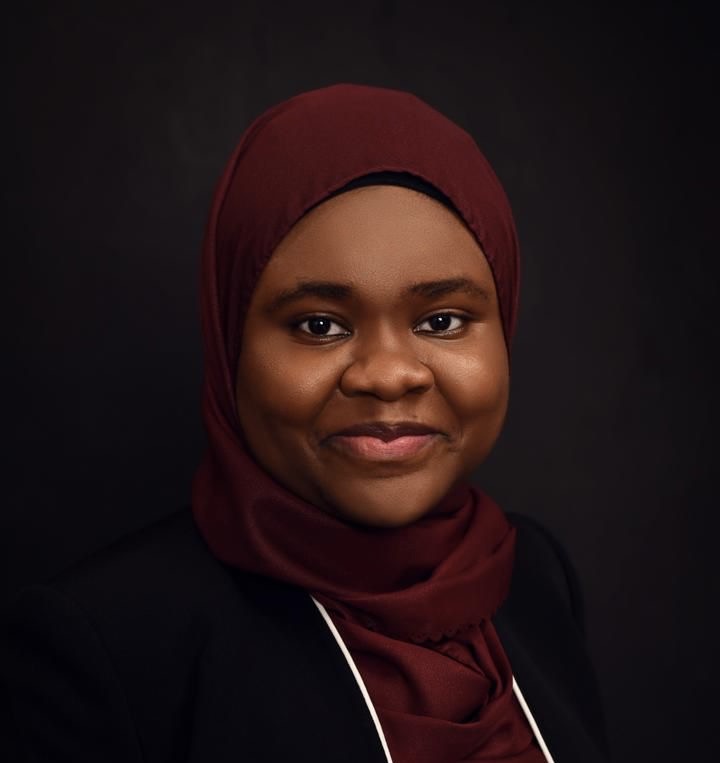As the field of artificial intelligence continues to advance, concerns around responsible data-sharing and patient consent have never been more pressing. Zaidat Ibrahim is a soon-to-be PhD graduate in Health Informatics and Human-Computer Interaction (HCI) whose research is bridging the gap between technology, health and ethics
Although Zaidat’s doctoral work spans various domains—including Gestational Diabetes and menstrual tracking—her latest efforts focus on data-sharing practices in rare disease research. Collaborating with Microsoft and Mary Gray (a leading expert in AI Ethics), she investigated how data consent is managed for conditions commonly diagnosed in infancy. Because these diseases affect smaller populations, patients can be more easily identified, heightening privacy risks. In her mixed-methods approach to research, Zaidat uncovered a nuanced set of ethical considerations in data collection and usage.
“Through this research I discovered we need a ‘dual-consent’ approach, where both parents must agree before their child’s data can be shared. I also found it’s vital for families to check in regularly and confirm they still approve of that sharing, re-consenting to data sharing empowers to people to be aware of how their data is being used and also ensure that data stewards (which includes researchers like myself) are held accountable to how we use this data and report back to the community/populations that we serve. These ideas could really shape future AI guidelines by making sure families stay involved and consent is reviewed over time”, Zaidat highlights.
In addition to highlighting the vulnerabilities in rare disease data-sharing, Zaidat’s work outlines a framework for creating more responsible, trustworthy AI systems. By advocating for careful data governance and adaptive consent models, her research seeks to protect vulnerable patient populations and foster public confidence in AI-driven healthcare.
Zaidat’s journey into health informatics began well before her PhD program. She worked at Massachusetts General Hospital, focusing on improving care for patients with lung diseases. Later, her role at Genentech Inc. fueled her aspiration to pursue doctoral studies, enhancing her research skills and deepening her understanding of diverse health experiences.
Her expertise has earned her invitations to exclusive workshops sponsored by prestigious institutions like the National Science Foundation and the Computing Community Consortium. In December 2024, she was invited to attend the “Supporting At-Risk Users Through Responsible Computing” workshop in Washington, D.C., where her insights supported discussions on protecting vulnerable populations. She has also been invited to collaborate internationally with leading researchers in Australia and Portugal, underscoring the global relevance of her work.
“I am profoundly grateful for the opportunities I’ve had to present my research both within the United States and internationally”, Zaidat said. “Collaborating and discussing our work’s impact with fellow researchers is something I deeply value. These interactions enable me to reflect critically on my own research while strengthening the quality of our work and its service to communities”
Throughout her career, Zaidat has garnered multiple accolades. She has been honored as a DigiStar Scholar for innovations in digital health, recognized as a Rising Star in EECS by the Massachusetts Institute of Technology, and named an ACM-W Scholar by the Association for Computing Machinery. Most recently, she received an honorable mention for one of her publications at the 2024 CHI conference in Hawaii, highlighting the impact and reach of her scholarly contributions.
Poised to complete her PhD in May 2025, Zaidat Ibrahim—who holds a Bachelor’s degree from Mount Holyoke College and a Master’s from the University of California, Berkeley—continues to expand her research agenda. Her work will undoubtedly inform how researchers, policymakers, and industry leaders approach AI ethics and data governance for underserved and at-risk populations in the years to come.
WATCH TOP VIDEOS FROM NIGERIAN TRIBUNE TV
- Let’s Talk About SELF-AWARENESS
- Is Your Confidence Mistaken for Pride? Let’s talk about it
- Is Etiquette About Perfection…Or Just Not Being Rude?
- Top Psychologist Reveal 3 Signs You’re Struggling With Imposter Syndrome
- Do You Pick Up Work-Related Calls at Midnight or Never? Let’s Talk About Boundaries







